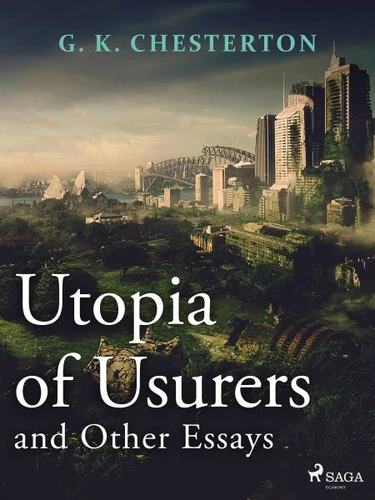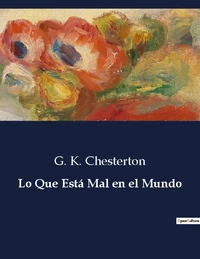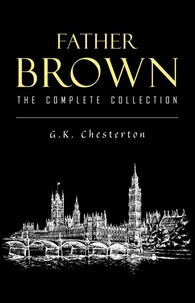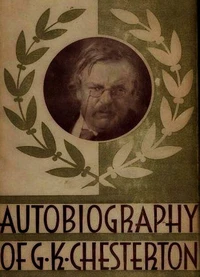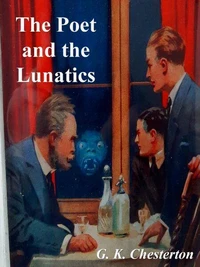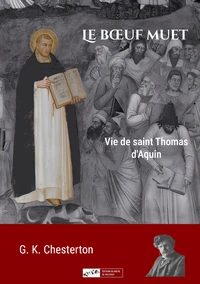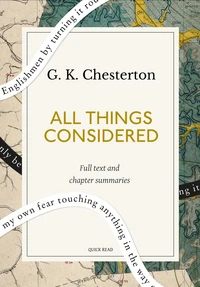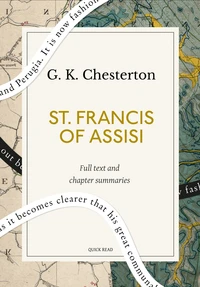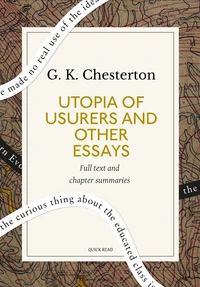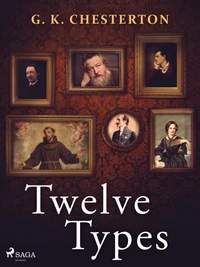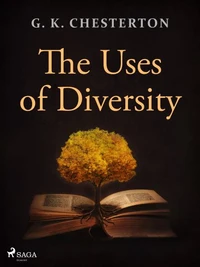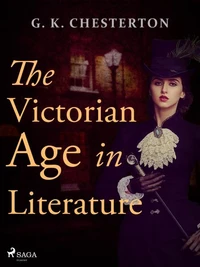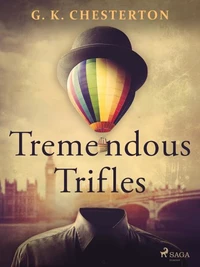Utopia of Usurers and Other Essays
Par :Formats :
Disponible dans votre compte client Decitre ou Furet du Nord dès validation de votre commande. Le format ePub est :
- Compatible avec une lecture sur My Vivlio (smartphone, tablette, ordinateur)
- Compatible avec une lecture sur liseuses Vivlio
- Pour les liseuses autres que Vivlio, vous devez utiliser le logiciel Adobe Digital Edition. Non compatible avec la lecture sur les liseuses Kindle, Remarkable et Sony
 , qui est-ce ?
, qui est-ce ?Notre partenaire de plateforme de lecture numérique où vous retrouverez l'ensemble de vos ebooks gratuitement
Pour en savoir plus sur nos ebooks, consultez notre aide en ligne ici
- Nombre de pages100
- FormatePub
- ISBN978-87-26-99261-8
- EAN9788726992618
- Date de parution12/01/2023
- Protection num.Digital Watermarking
- Taille399 Ko
- Infos supplémentairesepub
- ÉditeurSAGA Egmont
Résumé
"We must hit Capitalism, and hit it hard, for the plain and definite reason that it is growing stronger." Chesterton's essays on the pitfalls of capitalism, written in the early 1900s, still strike true in the modern-day.
One of England's greatest essayists, Chesterton analyses the claims of capitalism without preaching or favouring Marxist and socialist thinkers.
Instead, Chesterton's anti-capitalist arguments are drawn from his own Christian ideals and philosophical reasoning, giving a unique perspective that is invaluable for historians and students of philosophy alike.
Readers of Rebecca Henderson or Thomas Piketty should not miss this extraordinary glimpse into the ideologies of the past. Gilbert Keith Chesterton (1874 - 1936) was an English writer, journalist, philosopher, and literary critic. An unparalleled essayist, he produced over four thousand essays during his lifetime, alongside eighty novels and two hundred short stories. Tackling topics of politics, history, philosophy, and theology with tenacious wit and humour, G.
K. Chesterton was often considered a master of the paradox. Himself both a modernist and devout Catholic, he is remembered best for his priest-detective short stories 'Father Brown', and his metaphysical thriller 'The Man Who Was Thursday'. In his lifetime, Chesterton befriended and debated some of the greatest thinkers of the age, such as George Bernard Shore, H. G. Wells, and Bertrand Russell, while his works went on to inspire figures including T.
S. Eliot, Michael Collins, and Mahatma Gandhi.
Readers of Rebecca Henderson or Thomas Piketty should not miss this extraordinary glimpse into the ideologies of the past. Gilbert Keith Chesterton (1874 - 1936) was an English writer, journalist, philosopher, and literary critic. An unparalleled essayist, he produced over four thousand essays during his lifetime, alongside eighty novels and two hundred short stories. Tackling topics of politics, history, philosophy, and theology with tenacious wit and humour, G.
K. Chesterton was often considered a master of the paradox. Himself both a modernist and devout Catholic, he is remembered best for his priest-detective short stories 'Father Brown', and his metaphysical thriller 'The Man Who Was Thursday'. In his lifetime, Chesterton befriended and debated some of the greatest thinkers of the age, such as George Bernard Shore, H. G. Wells, and Bertrand Russell, while his works went on to inspire figures including T.
S. Eliot, Michael Collins, and Mahatma Gandhi.
"We must hit Capitalism, and hit it hard, for the plain and definite reason that it is growing stronger." Chesterton's essays on the pitfalls of capitalism, written in the early 1900s, still strike true in the modern-day.
One of England's greatest essayists, Chesterton analyses the claims of capitalism without preaching or favouring Marxist and socialist thinkers.
Instead, Chesterton's anti-capitalist arguments are drawn from his own Christian ideals and philosophical reasoning, giving a unique perspective that is invaluable for historians and students of philosophy alike.
Readers of Rebecca Henderson or Thomas Piketty should not miss this extraordinary glimpse into the ideologies of the past. Gilbert Keith Chesterton (1874 - 1936) was an English writer, journalist, philosopher, and literary critic. An unparalleled essayist, he produced over four thousand essays during his lifetime, alongside eighty novels and two hundred short stories. Tackling topics of politics, history, philosophy, and theology with tenacious wit and humour, G.
K. Chesterton was often considered a master of the paradox. Himself both a modernist and devout Catholic, he is remembered best for his priest-detective short stories 'Father Brown', and his metaphysical thriller 'The Man Who Was Thursday'. In his lifetime, Chesterton befriended and debated some of the greatest thinkers of the age, such as George Bernard Shore, H. G. Wells, and Bertrand Russell, while his works went on to inspire figures including T.
S. Eliot, Michael Collins, and Mahatma Gandhi.
Readers of Rebecca Henderson or Thomas Piketty should not miss this extraordinary glimpse into the ideologies of the past. Gilbert Keith Chesterton (1874 - 1936) was an English writer, journalist, philosopher, and literary critic. An unparalleled essayist, he produced over four thousand essays during his lifetime, alongside eighty novels and two hundred short stories. Tackling topics of politics, history, philosophy, and theology with tenacious wit and humour, G.
K. Chesterton was often considered a master of the paradox. Himself both a modernist and devout Catholic, he is remembered best for his priest-detective short stories 'Father Brown', and his metaphysical thriller 'The Man Who Was Thursday'. In his lifetime, Chesterton befriended and debated some of the greatest thinkers of the age, such as George Bernard Shore, H. G. Wells, and Bertrand Russell, while his works went on to inspire figures including T.
S. Eliot, Michael Collins, and Mahatma Gandhi.

